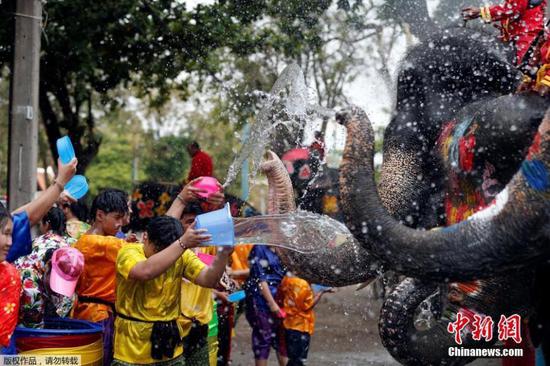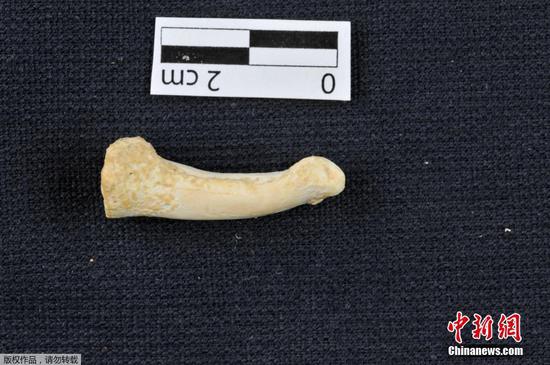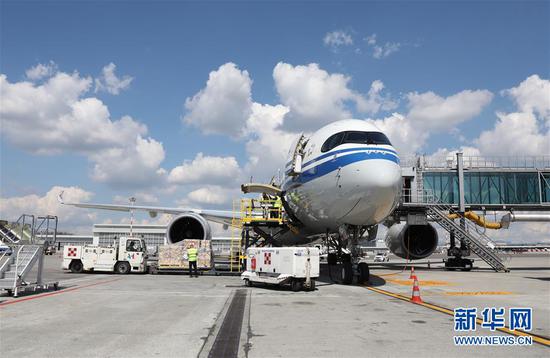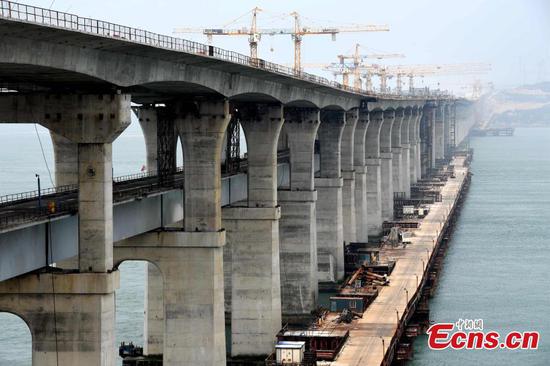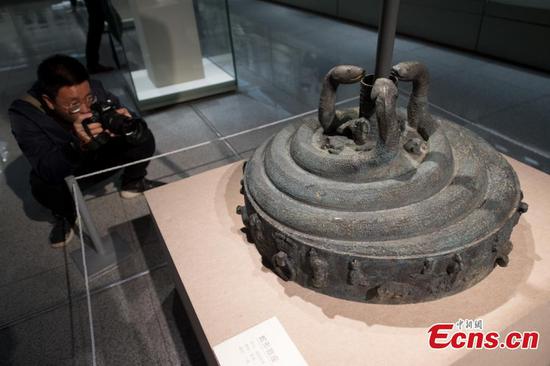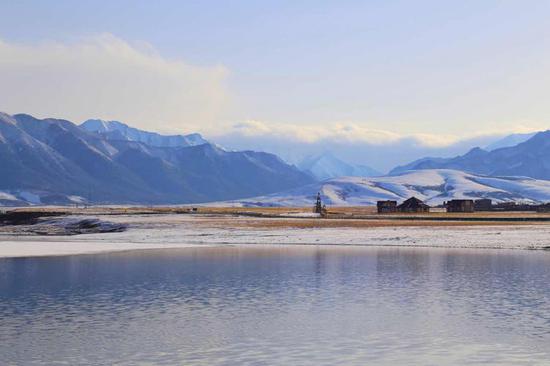
Officers seal a section of the Qinghai-Tibet Highway. (GUO QIUDA/XINHUA)
A timely warning
In 2006, Bai Gang, a former soldier in the People's Liberation Army from Shaanxi province, decided to devote himself to protecting the Sichuan-Tibet Highway, so he joined the armed police and was deployed at the gorge.
When he arrived, his comrades told him to work "like my head was hanging on a belt" - a slang expression that means to be ready to give up one's life at any moment.
Bai quickly realized that they were not exaggerating. That winter, the section of road on a nearby pass called Ngamjug La was hit by heavy snowfall and Bai was sent there to clear the way.
"The snow was more than a meter deep, and we couldn't see the road at all, so we had to walk 20 to 30 km looking for the road by feeling the ground with our feet, and marking out the road before we could drive our snow plows up to clear the snow," he said.
"What we feared most was an avalanche. Once, an avalanche engulfed and pushed a coach carrying dozens of passengers 100 to 200 meters."
For the past 14 years, Bai has been engaged in maintenance and disaster relief work on an 86-km section of road. Since 1996, when his unit began working on the section, at least seven officers have lost their lives to acts of nature.
"Working down here in the gorge, we cannot see the sky. A person can be hit by a rock in the blink of an eye and rolled into the torrent," he said.
The old stone bridge stands next to the new solid steel structure, but no one is allowed to use it. Clearly visible on a nearby mountain are three large characters - zheng, fu and shan (meaning "Conquer the mountain") - which were carved into the hill by the soldiers who built the old bridge back in the 1950s.
"The spirit left by our predecessors moves me and it has encouraged me to work in this place for so many years," Bai said.


















